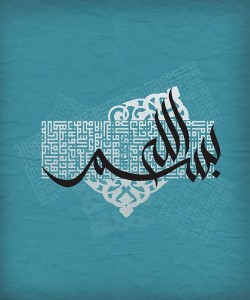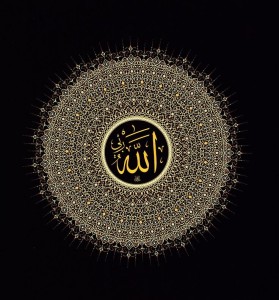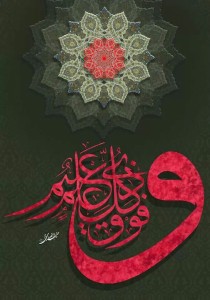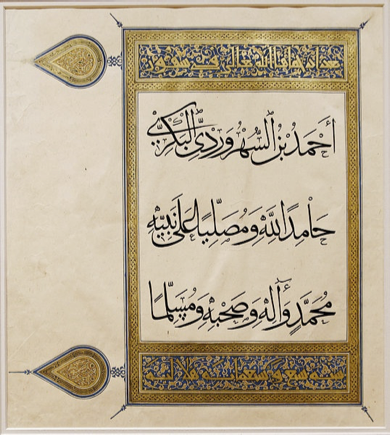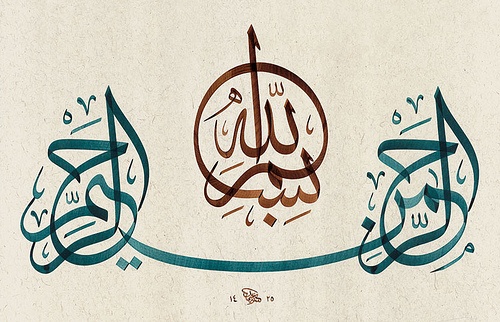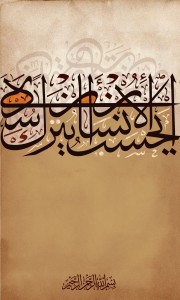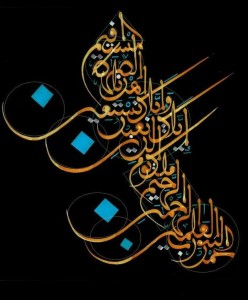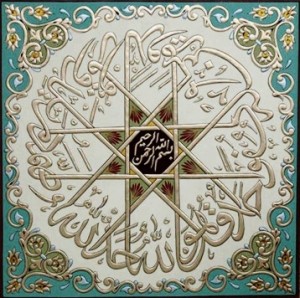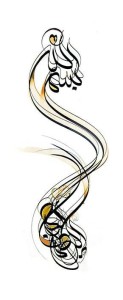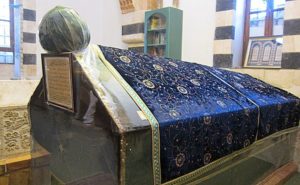Ahadith On The Water Of Life
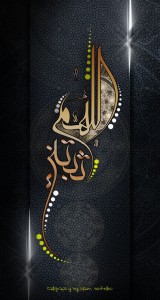 Sufyan (one of the narrators) said: “People claim that there is a spring of life at that rock, no dying person has its water poured over him, but he becomes alive, and the fish came in contact with some of it, so when the water dropped on it, it became alive.”(Tirmidhi, Sahih)
Sufyan (one of the narrators) said: “People claim that there is a spring of life at that rock, no dying person has its water poured over him, but he becomes alive, and the fish came in contact with some of it, so when the water dropped on it, it became alive.”(Tirmidhi, Sahih)
Imam Muslim records in his Sahih, The Book of Faith (Kitab Al-Iman):
Abu Haraira reported: The people said to the Messenger of Allah (may peace be upon him): Messenger of Allah, shall we see our Lord on the Day of Resurrection? The Messenger of Allah (may peace be upon him) said: Do you feel any trouble in seeing the moon on the night when it is full? They said: Messenger of Allah, no. He (the Messenger) further said: Do you feel any trouble in seeing the sun, when there is no cloud over it? They said: Messenger of Allah. no. He (the Holy Prophet) said: Verily you would see Him like this (as you see the sun and the moon). God will gather people on the Day of Resurrection and say: Let every people follow what they worshipped. Those who worshipped the sun would follow the sun, and those who worshipped the moon would follow the moon, and those who worshipped the devils would follow the devils.
This Ummah (of Islam) alone would be left behind and there would be hypocrites too amongst it. Allah would then come to them in a form other than His own Form, recognisable to them, and would say: I am your Lord. They would say: We take refuge with Allah from thee. We will stay here till our Lord comes to us. and when our Lord would come we would recognise Him. Subsequently Allah would come to them in His own Form, recognisable to them, and say: I am your Lord. They would say: Thou art our Lord. And they would follow Him, and a bridge would be set over the Hell; and I (the Holy Prophet) and my Ummah would be the first to pass over it; and none but the messengers would speak on that day, and the prayer of the messengers on that day would be: O Allah! grant safety, grant safety. In Hell, there would be long spits like the thorns of Sa’dan He (the Holy Prophet) said: Have you seen Sa’dan? They replied: Yes, Messenger of Allah. He said: Verily those (hooks) would be like the thorns of Sa’dan, but no one knows their size except Allah. These would seize people for their misdeeds. Some of them would escape for their (good) deeds, and some would be rewarded for their deeds till they get salvation. When Allah would finish judging His bondsmen and because of His mercy decide to take out of Hell such people as He pleases.
He would command the angels to bring out those who had not associated anything with Allah; to whom Allah decided to show mercy. those who would say: There is no god but Allah. They (the angels) would recognise them in the Fire by the marks of prostration, for Hell-fire will devour everything (limb) of the sons of Adam except the marks of prostration. Allah has forbidden the fire to consume the marks of prostration. They will be taken out of the Fire having been burnt, and the water of life would be poured over them, and they will sprout as (a) seed does In the silt carried by flood. Then Allah would finish judging amongst His bondsmen; but a man who will be the last to enter Paradise will remain facing Hell and will say: O my Lord I turn my face away from Hell, for its air has poisoned me ard its blaze has burnt me. He will then call to Allah as long as Allah would wish that he should call to Him.
Then Allah, Blessed and Exalted, would say: If I did that, perhaps you would ask for more than that. He would say: I would not ask You more than this, and he would give his Lord covenants and agreements as Allah wished, and so He would turn his face away from the Fire When he turns towards the Paradise and sees it, he will remain silent as long as Allah wishes him to remain so. He will then say: O my Lord I bring me forward to the gate of the Paradise. Allah would say to him: Did you not give covenants and agreements that you would not ask for anything besides what I had given you. Woe to thee! O son of Adam, how treacherous you are! He would say: O my Lord! and would continue calling to Allah till He would say to him: If I grant you that, perhaps you will ask for more. He will reply: No, by Thy greatness, and he will give His Lord promises and covenants as Allah had wished. He would then bring him to the gate of the Paradise, and when he would stand at the gate of the Paradise, it would lay open before him. and he would see the bounty and the joy that there is in it. He would remain quiet as long as Allah would desire him to remain silent. He would then say: O my Lord, admit me to Paradise. Allah. Blessed and Exalted, would say: Did you not give covenants and agreements that you would not ask for anything more than what I had granted you? Woe to you! son of Adam, how treacherous you are! And he would say: O my Lord, I do not wish to be the most miserable of Thy creatures. He would continue calling upon Allah till Allah, Blessed and Exalted, would laugh. When Allah would laugh at him, He would say: Enter the Paradise. When he would enter, Allah would say: State your wish.
He would express his wishes till Allah would remind him (the desire of) such and such (things). When his desires would be exhausted Allah would say: That is for thee and, besides it, the like of it also. ‘Ata’ b. Yazid said: Abu Sa’id al-Khudri was with Abu Huraira and be did not reject anything from the hadith narrated by him, but when Abu Huraira narrated:” Allah said to that man; ind its like along with it,” Abu Sa’id said:” Ten like it along with it,” O Abu Huraira. Abu Huraira said: I do not remember except the words:” That is for you and a similar one along with it.” Abu Sa’id said: I bear witness to the fact that I remembered from the Messenger of Allah (may peace be upon him) his words:” That is for thee and ten like it.” Abu Huraira said: That man was the last of those deserving of Paradise to enter Paradise.


